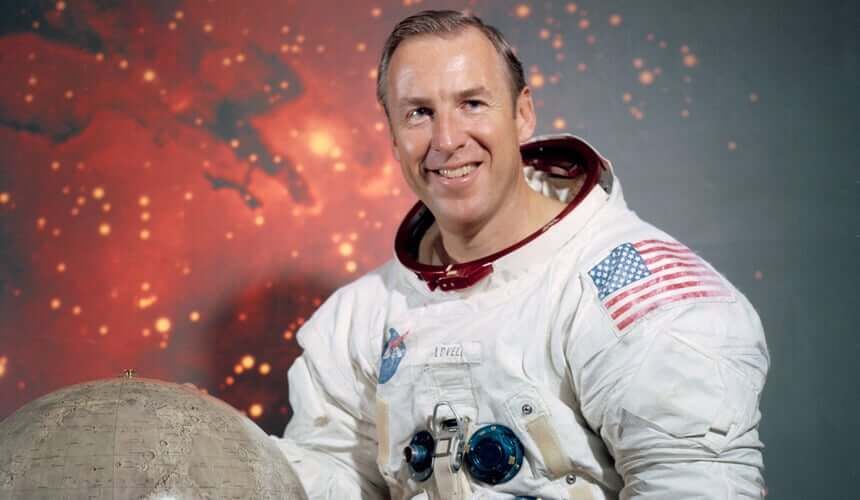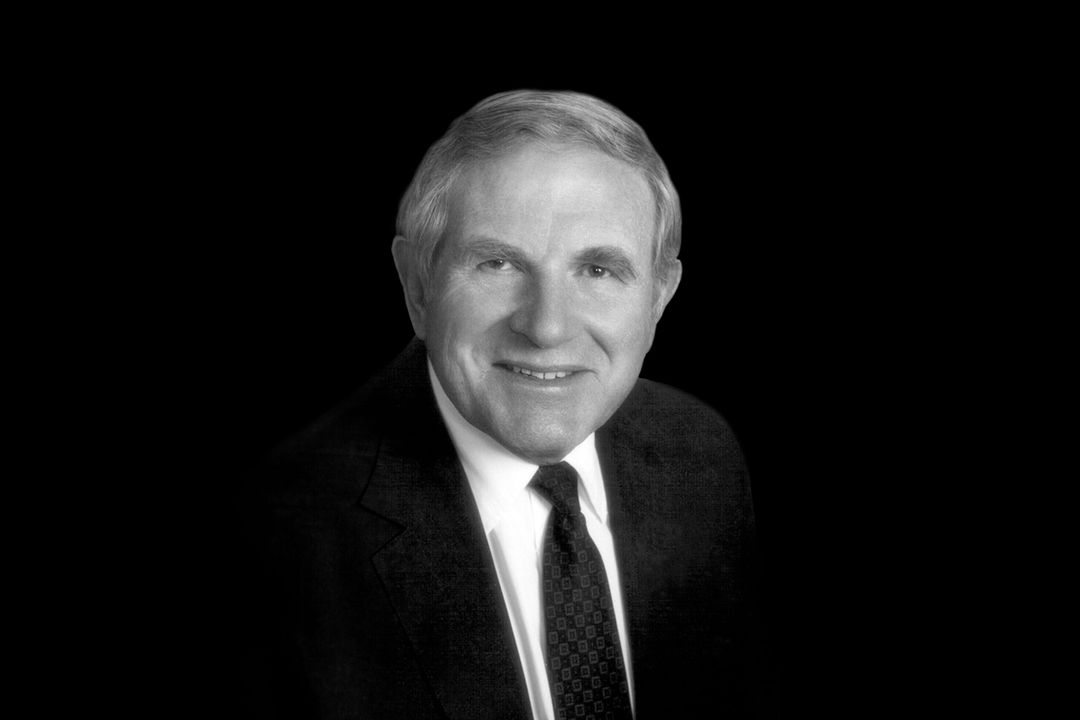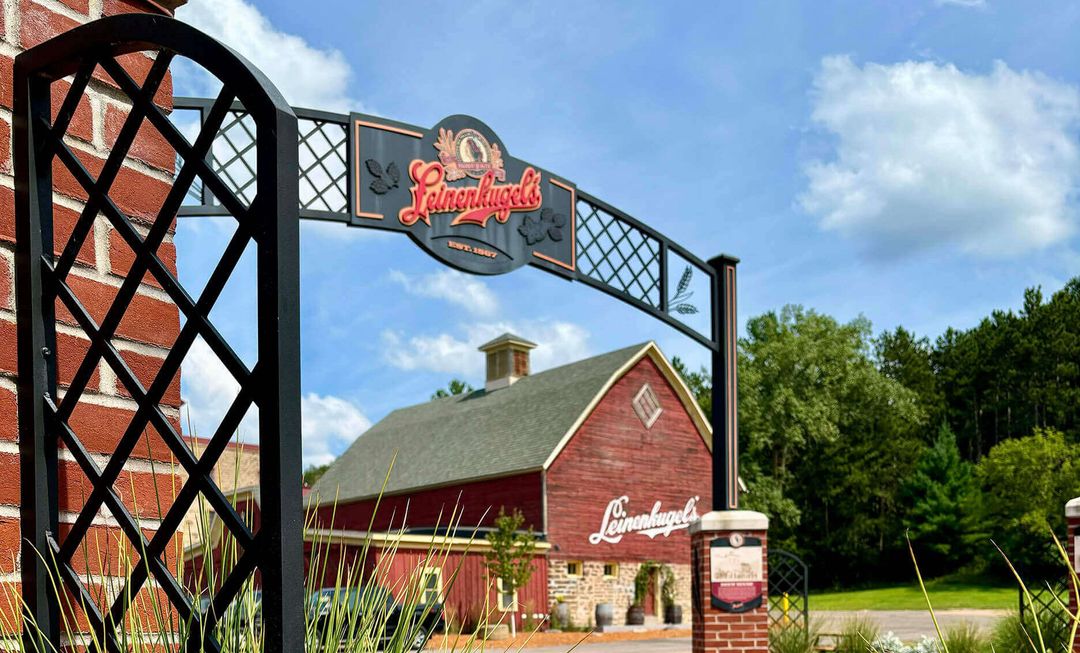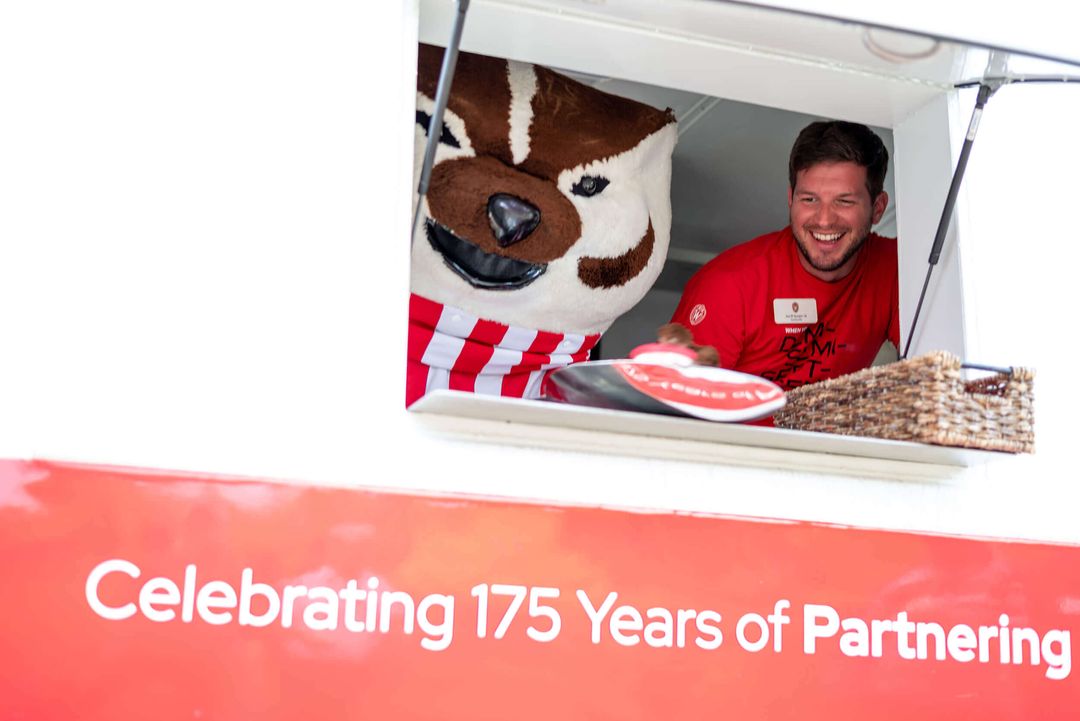The Wisconsin alumni community mourns the passing of James Lovell x’50, a pioneering astronaut whose calm leadership helped save the crew of Apollo 13.
Lovell died on August 7, 2025, in Lake Forest, Illinois. He was 97.
Lovell’s legacy is etched into the annals of space exploration. As command module pilot of Apollo 8 in 1968, he became one of the first three humans — alongside Frank Borman and William Anders — to fly to and orbit the moon. Two years later, he commanded Apollo 13, a mission that turned into a dramatic rescue after an oxygen tank explosion threatened the lives of the crew. Lovell’s steady hand and quick thinking helped guide the damaged spacecraft safely back to Earth, earning him the enduring admiration of a nation.
“Jim has been an inspiration to generations of Badgers,” said Sarah Schutt, WAA’s executive director and chief alumni officer. “He showed us what we could achieve, and how a leader's calm, poise, and willingness to sacrifice give people the strength to face any challenge.”
NASA also paid tribute to Lovell, stating, “Jim’s character and steadfast courage helped our nation reach the moon and turned a potential tragedy into a success from which we learned an enormous amount.”
Lovell studied engineering at UW–Madison before transferring to the U.S. Naval Academy, graduating in 1952. That same day, he married his high school sweetheart, Marilyn Gerlach. The couple would go on to have four children: Barbara, James, Susan, and Jeffrey.
A decorated naval aviator and test pilot, Lovell joined NASA in 1962 as part of the “Next Nine” astronauts selected for the Gemini and Apollo programs. He flew on Gemini 7 and Gemini 12 before his historic Apollo missions. Lovell was the first person to fly into space four times and one of only three astronauts to travel to the moon twice, though he never walked on its surface.
Apollo 13, launched in April 1970, was meant to be Lovell’s lunar landing. Instead, it became a testament to human ingenuity and resilience. After the explosion, Lovell and his crew used the lunar module as a lifeboat, looping around the moon and returning home against daunting odds. His understated declaration, “Houston, we’ve had a problem,” became iconic, immortalized in the 1995 film Apollo 13, where Tom Hanks portrayed him. Lovell made a cameo in the film and coauthored the book Lost Moon, which inspired it.
Lovell retired from NASA and the Navy in 1973. He later entered into private business and opened a restaurant, Lovell’s of Lake Forest, with his family. He received numerous honors, including the Congressional Space Medal of Honor and the Presidential Medal of Freedom.
He maintained contact with UW–Madison, and he addressed the graduating class in December 2016. “You will be amazed at what you can do,” he said. “My mother could hardly believe that I circled the moon in 1968, but today, my 50-year-old son doesn’t think it’s any big deal because, after all, we had done it as long as he can remember. Your generation will stand on a higher hill because of the mountains that we have climbed, and the whole world benefits from your ready acceptance of it.”
Lovell’s wife, Marilyn, passed away in 2023. He is survived by his four children and a legacy that continues to inspire generations of explorers.
Lovell was inducted into the Wisconsin Alumni Association’s Alumni Park at its opening in 2017.
James Lovell’s life was a journey of courage, curiosity, and quiet heroism — a true American pioneer who reached for the stars and brought us all along with him.





